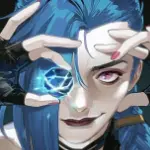Initially, it seemed like your typical revenge drama with a protagonist turning dark. However, as the plot unfolds, it critically reflects on two different ways women exist.
One is the protagonist, Mizu, who is actually a very strong person but is unfortunately trapped by her female identity and confined by gender stereotypes. Despite seeming willing to understand her husband and be understood by him, she is only accepted when conforming to his stereotypes. When Mizu displays even greater strength than expected, he grows to resent her. On the other hand, Taehyun appears to acknowledge and respect Mizu's strength, but ironically, he still perceives her as a man.

Mizu's situation not only criticizes how narrow society's acceptance of strong women is but also highlights to what extent gender stereotypes weaken people's capacity for love. It's evident that people have only been trained to see male characters as protectors and leaders who care for fragile female characters. But the dynamics become cramped and ridiculous when the situation involves two equals or even when the female character is more robust.
The other way of female existence is exemplified by Princess Myeongmi, who has been treated as a doll since childhood, destined for a life of raising children and being someone's appendage. Although Myeongmi, who desires emotional freedom, appears to have a strong personality, fundamentally, she's still love-oriented. Her behavior in the early episodes doesn't truly reflect her desire to control her own life. This depiction echoes the misunderstood "independent woman" – some girls don't use their independence to build a better life for themselves or choose equal partners; instead, they use it to accommodate incompetent lovers and indulge in self-sufficiency. But just as love should be mutual, independence should also be mutual.

However, Myeongmi has undergone great changes over time. As she gradually realizes that true freedom isn't just about free love but about becoming the person she wants to be, her response to Taehyun's statement, "But I only want to be your man, I don't need to achieve greatness," is, "But I want to achieve greatness!" Taehyun's eyes show surprise and disappointment. Mizu's storyline converges with Myeongmi's, and the collision between female characters and self-awareness is intense.

This reminded me of a passage from "Men Explain Things To Me": "Women's liberation is often depicted as an attempt to encroach upon or seize men's power and privilege as if it were a dark zero-sum game. But either we're all free, or we're all slaves. Those who think they need to win, need to dominate, need to punish, need supreme rule – their mentality is terrible and far from freedom. Abandoning this unattainable pursuit is liberation."








































Share your thoughts!
Be the first to start the conversation.